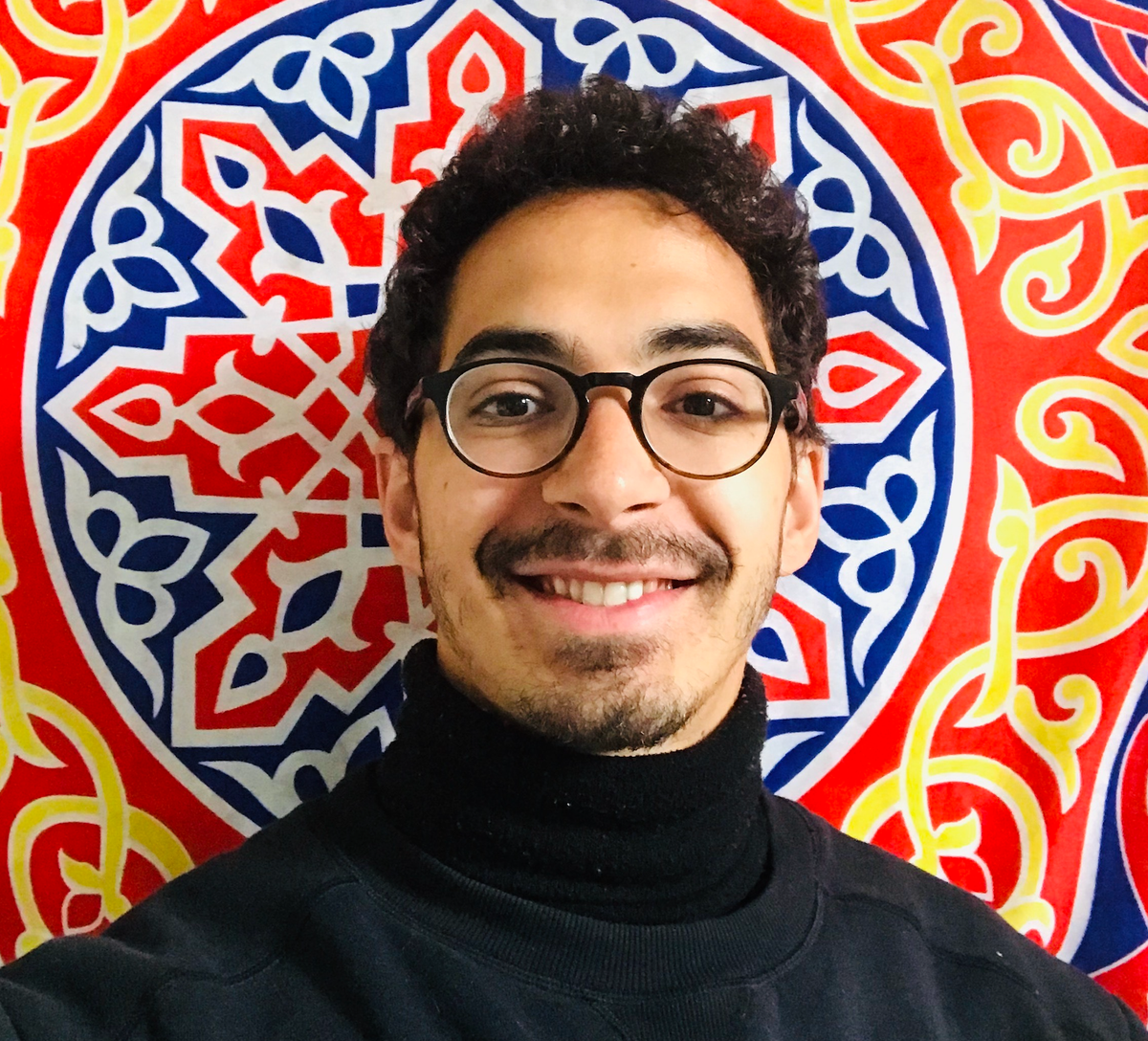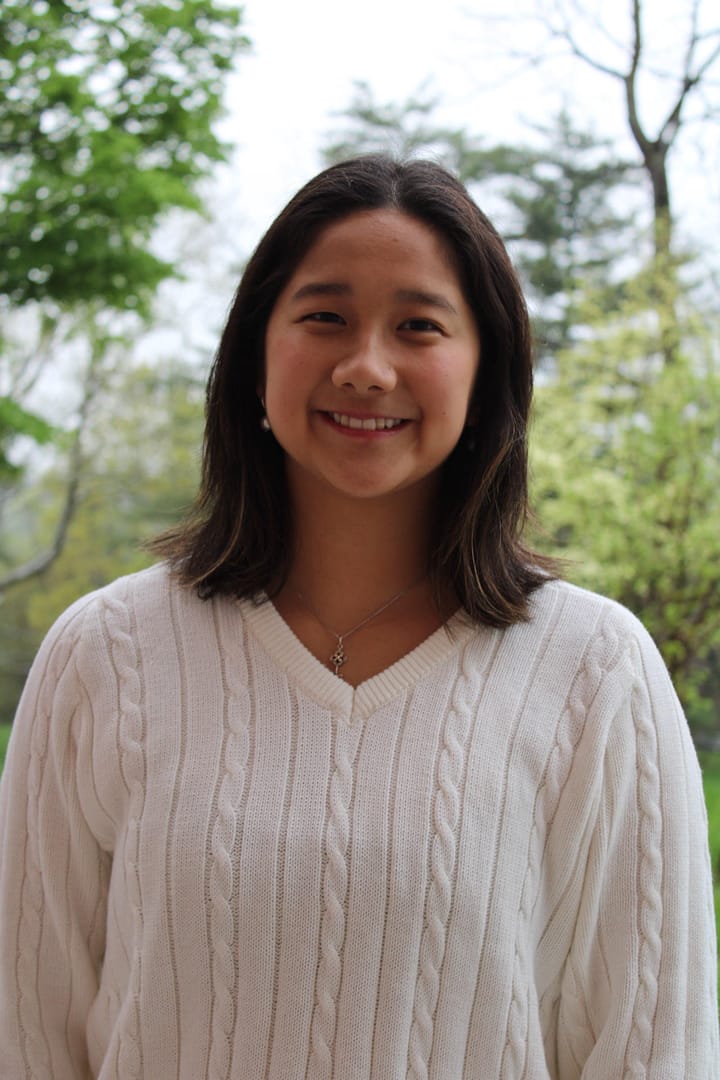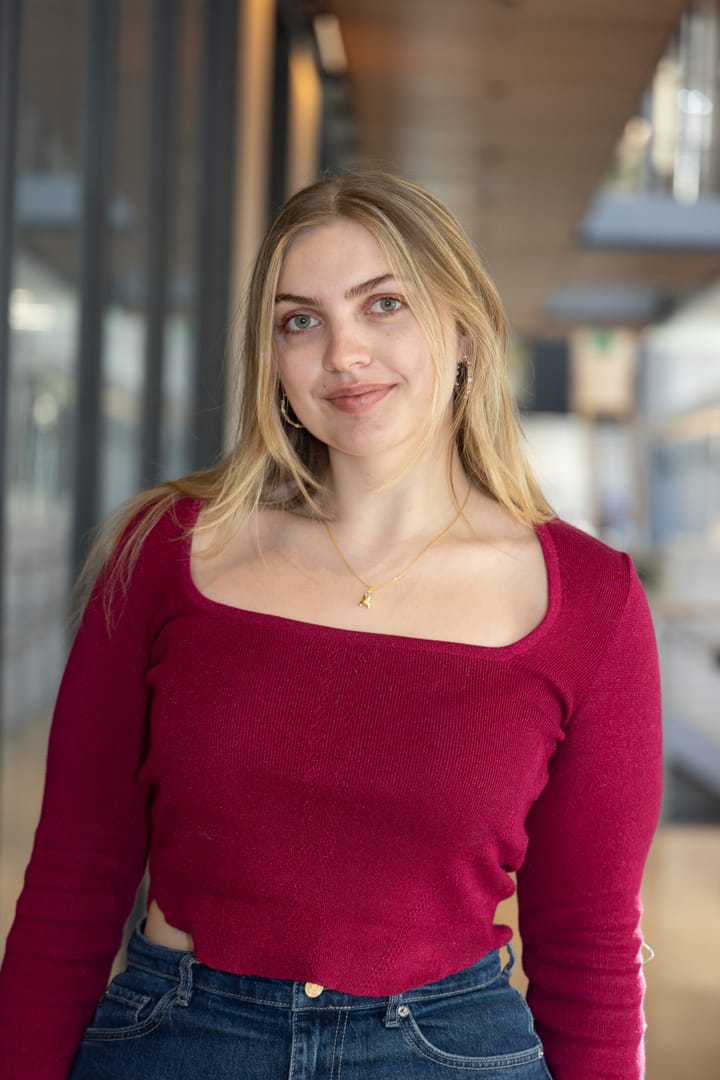Bridging Worlds and Healthcare Disparities — Alumni Profile, Mohamed Ahmed Ramy ’18
A global migrant himself, Mohamed Ahmed Ramy ’18 has traversed the world in pursuit of more equitable healthcare systems and policies for the displaced.

When I Zoomed in to my interview with Mohamed Ahmed Ramy ’18 last Saturday evening, he was sitting in a cafe in Puerto Escondido, a port town in Oaxaca, Mexico. He joked that his brother compares him to the medieval Muslim scholar and explorer Ibn Battuta, who traveled the lands of Afro-Eurasia, bridging its people’s differences as a student of the world.
Certainly fitting of this nickname, Ramy has long been characterized by his receptive outlook, adventurous spirit, and analytical mind. Once an Egyptian international student and neuroscience major at Amherst captivated by new ideas, he has since traversed the world on a Thomas J. Watson fellowship to study refugee displacement, examined healthcare systems as a Schwarzman Scholar at Tsinghua University in China, and collaborated with various international NGOs. He now serves as both a Programme Analyst for the United Nations Development Programme’s Global Fund Implementation Team and an impact consultant on a health equity project for Boldly Go Philanthropy, and worked as a Clinic Coordinator for the Refugee Health Alliance after his recent move to the border city of Tijuana, Mexico.
From Cairo to Amherst
Ramy was raised in Cairo, Egypt, a place he describes by its chaotic nature: “One of the things that I learned from Cairo was how to adapt — how to move among older people, how to deal with traffic, the government, the police.” Ramy recalled how in such an unstructured environment, he could organically determine what he wanted his principles to be.
He reflected on his family using two adages that they taught him and his brother. The first, said by his father, was that “you have to give your Saturdays to earn your Sundays,” meaning that the work has to be put in today to earn the rest tomorrow. And although he does not identify as religious, the second adage he emphasized was “those that humble themselves to God are raised by him.” “One of the most important values that they tried to instill in me was the idea of humility,” he explained. “That you can learn from anybody no matter where you are in life.”
While he had never heard of a liberal arts education growing up, Ramy entered his college search knowing that he desired a small community in which he could truly get to know people and have depth over breadth. Amherst had resonated with him, particularly because he could freely explore his curiosity through its open curriculum and avoid financial stress through need-blind admission. He liked that he could be introduced to the United States through the microcosm of a small town, and while he was aware that the town wasn’t indicative of its reality, he was intrigued by the United States as a concept. “I do believe in a form of the American Dream,” Ramy said. “I feel that the United States is a country that’s constantly trying to push itself to the brink, and while that can be very tiring for certain people, for me with that adage of ‘you have to give your Saturdays to earn your Sundays,’ I felt that it was the place where I would thrive the most, and the place where I could perform the most.”
Chasing Thrills
Ramy characterizes his Amherst experience as “exhilarating,” providing the feeling that anything was possible. During his sophomore year, Ramy took an 8:30 a.m. English course on the work of Emerson. Although he started the class simply hoping to teach himself the self-discipline needed to get to class by 8:30, it turned out to be one of his favorite classroom experiences in its sense of “horizontal leadership”: its impression that each student owned the space. When he wanted to design his own course in his junior year on “Readings in Arabic Philosophy,” he did so as a special topics student with Associate Professor of Religion Tariq Jaffer, the two of them writing papers and discussing Arabic texts. “I think that Amherst does propel people who ask,” he advised current students on the topic of seeking such opportunities. “And I think there’s a lot of courage in learning to ask, because we’ve been taught by institutions and by the concept of what respect means to not ask, to make ourselves smaller, to not take up space. Amherst was exhilarating in the sense that it taught me how to take up space — well and in an informed way, of course.”
He found himself drawn to the neuroscience major as he was fascinated by learning how the brain works, thrilled by the idea of humans still being in the making. He remembered his sophomore year Intro to Neuroscience course in which Associate Professor of Biology Josef Trapani, his future thesis advisor, mimicked sodium and potassium channels opening and closing by slamming doors. “I’ll never forget the intensity with which some professors bring their topic to life.” He liked the notion of training as a scientist, learning to understand hypotheses and evidence, to disaggregate data to see a story and act on it.
“There was always this sense of thrill [about] what is to come next, and I think I still hold that with me in everything that I do.”
Shouldering Responsibility
He reflects on his roles at Amherst — such as resident counselor and co-chair of the Charles Drew Health Professionals Society — not as “accomplishments,” but rather as responsibilities to give back to the community. Ramy noted taking particular pride and joy in being a resident counselor for three years, twice for first-years, and meeting about 150 residents in total. “I tried my best to leave people respecting one another, seeing cultural differences, engaging with them … being this resource [was] an accomplishment in that people were willing to lean on me, people were okay to trust me.”
Ramy also faced challenges at Amherst. He explained that one of the most transformative of these was leaving the track and field team, which he had worked hard to make the cut to walk on part of the way through his sophomore year. “I felt that one of the things that was difficult about Amherst was that you felt that you always needed to do a lot, and that you could always do more. And I think every single Amherst student struggles with these two feelings until they either learn to let go or they reach their break point … I realized that if I stretch myself too thin, I break.”
Traversing the World
Awarded a Thomas J. Watson fellowship, Ramy traveled during the year after his graduation. He traveled to Jordan, the United Kingdom, Germany, Canada, and Colombia to study how refugees and migrants recreate a sense of home after suffering the trauma of dislocation. With each country came a different lens of study — through food security and business development in Colombia, law and psychosocial care in Jordan, a family hosting program in Canada, language in Germany and art and cinema in the U.K. “It was traversing different worlds with this undertone of policy ripping these lives apart.”
Having observed health policy rip lives apart, Ramy’s curiosity was piqued by the making of successful and inclusive healthcare systems. This interest led him, during his second year after graduation, to take on a position as a Schwarzman Scholar at Tsinghua University in China, where he studied the implementation of such systems up close. From there he pivoted from a reproductive health NGO in Egypt to a life sciences consulting group in Hong Kong, before eventually landing his current position with the United Nations Development Programme (UNDP).
As a Programme Analyst for the UNDP Global Fund Team, Ramy contributes to work helping 22 country offices implement HIV, TB, and malaria programs. He continues this work while also acting as a remote consultant for Boldly Go Philanthropy on a current project with a U.S. health equity foundation. Following a recent move to Mexico, Ramy now additionally serves as a Clinic Coordinator for the Refugee Health Alliance, developing strategies for health education and managing operations behind provider-patient interactions along the Mexico-United States border. “The balancing component of all of these different responsibilities comes with the time difference,” he said. “So these are not happening simultaneously, but rather in parallel.”
Looking Ahead
Ramy made sure to end our conversation on a note of gratitude. “I’ve been very lucky to rely on the education that Amherst provided for me to be able to be adaptive, open, and critical — of others, of myself, of organizations. It will always be a place where I feel like home. And it’s part of the reason why I always donate every year to Amherst … because they basically paid for my education, and I’m very grateful for that. Even if it’s just $50 a year. The reason why I can go to all these different places and adapt and leave something of impact surely comes from other experiences as well, but they have been built up by the base that Amherst provided for me.”
Ready to take on the MCAT and the upcoming application cycle, Ramy’s next step is medical school — after being propelled around the globe to understand medicine’s multinational components, he now intends to narrow his focus. Although his time with the Refugee Health Alliance will end come December, he plans to continue fundraising efforts for the organization. Uncertain of where in the world his pursuits will take him, Ramy nevertheless continues “moving from what Dean Aronson calls ‘cultural competence,’ moving from the perspective of ‘if I make you feel like you have a stake in this, you’re going to try to make this work with me.’”





Comments ()